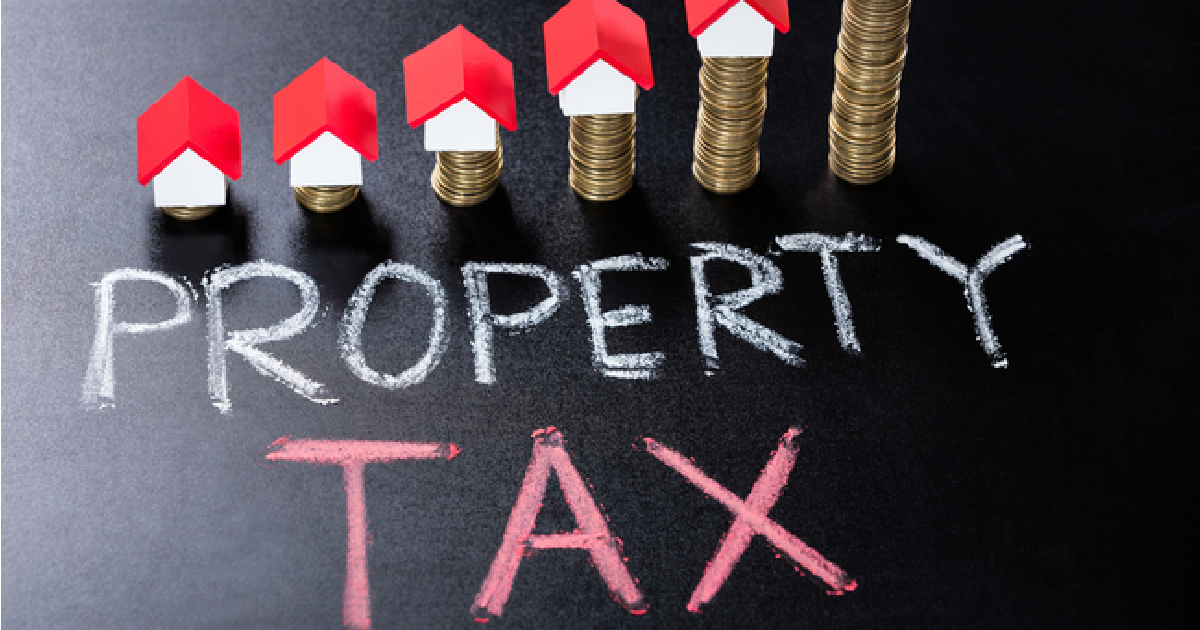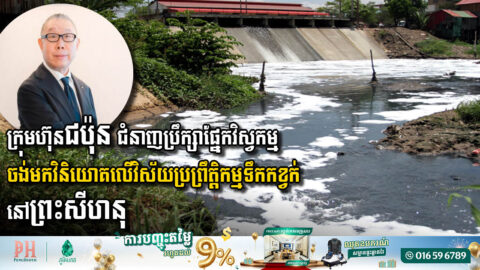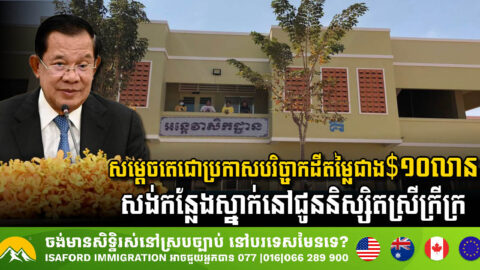ក្រុមហ៊ុន NTT ចង់ពង្រីកការវិនិយោគរបស់ខ្លួន ផ្តោតលើការអភិវឌ្ឍវិស័យឌីជីថលនៅកម្ពុជា
ក្រុមហ៊ុន NTT DOCOMO GLOBAL Inc., របស់ជប៉ុន បានបង្ហាញបំណងក្នុងការស្វែងរកឱកាសវិនិយោគ ដើម្បីពង្រីកសេវាគ្របដណ្តប់ និងអភិវឌ្ឍវិស័យឌីជីថលនៅកម្ពុជា សំដៅរួមចំណែកដល់ការអភិវឌ្ឍសង្គមឌីជីថលកម្ពុជាកាន់តែប្រសើរ។ បំណងនេះ បានបង្ហាញដោយលោក HIROKI Kuriyama ប្រធាន និងជានាយកប្រតិបត្តិ នៃក្រុមហ៊ុន NTT DOCOMO GLOBAL Inc., ក្នុងជំនួបជាមួយសម្តេចនាយករដ្ឋមន្រ្តី ហ៊ុន ម៉ាណែត នៅថ្ងៃទី២៨ ខែឧសភា ឆ្នាំ២០២៥។ ក្នុងជំនួបនោះ លោក HIROKI Kuriyama ប្រធានក្រុមហ៊ុន បានបង្ហាញពីគោលបំណងក្នុងការស្វែងរកឱកាសវិនិយោគនៅកម្ពុជា ជាពិសេសក្នុងវិស័យឌីជីថល ដើម្បីរួមចំណែកដល់ការអភិវឌ្ឍសេដ្ឋកិច្ច និងសង្គមឌីជីថលនៅកម្ពុជាបន្ថែមទៀត។ ជាការឆ្លើយតប សម្ដេចធិបតី បានស្វាគមន៍គោលបំណងរបស់ក្រុមហ៊ុនក្នុងការស្វែងរកឱកាសវិនិយោគនៅកម្ពុជាក្នុងការអភិវឌ្ឍវិស័យឌីជីថល ជាពិសេសការពង្រីកសេវាគ្របដណ្តប់ និងអភិវឌ្ឍហេដ្ឋារចនាសម្ព័ន្ធឌីជីថល ដើម្បីឱ្យពលរដ្ឋគ្រប់រូបមានឱកាសកាន់តែច្រើនក្នុងការប្រើប្រាស់បច្ចេកវិទ្យាឌីជីថល។ សម្ដេចបន្តថា បច្ចុប្បន្ន ក្រសួងស្ថាប័នពាក់ព័ន្ធកម្ពុជា កំពុងបញ្ចប់ដំណើរការ និងត្រៀមដាក់ឱ្យប្រើប្រាស់បច្ចេកវិទ្យា 5G នៅទូទាំងប្រទេសផងដែរ។ បន្ថែមពីនេះ សម្ដេចក៏បានណែនាំឱ្យក្រុមហ៊ុនបន្តពិភាក្សាជាមួយក្រសួងប្រៃសណីយ៍ និងទូរគមនាគមន៍ ដើម្បីសិក្សាលម្អិតអំពីលទ្ធភាពវិនិយោគលើវិស័យឌីជីថលកម្ពុជា។ សូមជម្រាប់ថា ក្រុមហ៊ុន […]
អង្គការពាណិជ្ជកម្ម JETRO ប្តេជ្ញាបន្តជំរុញការវិនិយោគរបស់ជប៉ុននៅកម្ពុជាឱ្យរិតតែប្រសើរបន្ថែមទៀត
នៅក្នុងការផ្លាស់ប្តូរដ៏សំខាន់មួយក្នុងការពង្រឹងទំនាក់ទំនងសេដ្ឋកិច្ច អង្គការពាណិជ្ជកម្មក្រៅប្រទេសជប៉ុន (JETRO) បានបញ្ជាក់ជាថ្មីពីការប្តេជ្ញាចិត្តរបស់ខ្លួនក្នុងការលើកកម្ពស់ការវិនិយោគរបស់ជប៉ុននៅក្នុងប្រទេសកម្ពុជា។ ការប្រកាសនេះធ្វើឡើងក្នុងជំនួបផ្លូវការរវាងសម្តេចនាយករដ្ឋមន្រ្តី ហ៊ុន ម៉ាណែត និងលោក ISHIGURO Norihiko ប្រធាន និងជានាយកប្រតិបត្តិរបស់ JETRO ក្នុងដំណើរទស្សនកិច្ចនៅទីក្រុងតូក្យូ ពីថ្ងៃទី ២៨-៣១ ខែឧសភា ឆ្នាំ២០២៥។ ក្នុងកិច្ចពិភាក្សារបស់ពួកគេ លោក Norihiko បានសម្តែងការសាទរចំពោះកិច្ចសហប្រតិបត្តិការជាបន្តបន្ទាប់ជាមួយសភាពាណិជ្ជកម្មកម្ពុជាក្នុងការរៀបចំវេទិកាធុរកិច្ចកម្ពុជា-ជប៉ុននៅទីក្រុងតូក្យូ។ វេទិកានេះបានទាក់ទាញអ្នកតំណាងធុរកិច្ចជប៉ុននិងកម្ពុជាមកចូលរួមយ៉ាងច្រើនក្នុងគោលបំណងលើកកម្ពស់ទំនាក់ទំនងពាណិជ្ជកម្មទ្វេភាគី។ លោក Norihiko ក៏បានលើកឡើងពីផែនការសម្រាប់គណៈប្រតិភូ JETRO ដែលនឹងនាំអ្នកវិនិយោគជប៉ុនមកកម្ពុជា ដើម្បីស្វែងរកឱកាសវិនិយោគថ្មីៗនៅពេលខាងមុខ។ លោកនាយករដ្ឋមន្ត្រី បានកោតសរសើរចំពោះតួនាទីដ៏សំខាន់របស់ JETRO ក្នុងការសម្របសម្រួលវេទិកាធុរកិច្ច ដោយសង្កត់ធ្ងន់លើសារៈសំខាន់របស់ខ្លួនជាវេទិកាសម្រាប់ពង្រឹងទំនាក់ទំនងពាណិជ្ជកម្មកម្ពុជា-ជប៉ុន។ លោកបានរំលឹកឡើងវិញនូវយុទ្ធសាស្ត្ររបស់រាជរដ្ឋាភិបាលក្នុងការទាក់ទាញការវិនិយោគពីបរទេសតាមរយៈការលើកទឹកចិត្តផ្សេងៗ និងការប្តេជ្ញាចិត្តក្នុងការកែលម្អហេដ្ឋារចនាសម្ព័ន្ធ ជាពិសេសផ្នែកភស្តុភារ។ គម្រោងសំខាន់ៗរួមមានការអភិវឌ្ឍន៍បណ្តាញផ្លូវថ្នល់ អាកាសយានដ្ឋានអន្តរជាតិ និងកំពង់ផែទឹកជ្រៅ។ ជាងនេះទៅទៀត លោកនាយករដ្ឋមន្ត្រីបានជំរុញឱ្យអ្នកវិនិយោគជប៉ុនពិចារណាលើការបង្កើតតំបន់សេដ្ឋកិច្ចពិសេសពិសេស (SEZs) ដែលសមស្របនឹងឧស្សាហកម្មរបស់ពួកគេ។ វិធីសាស្រ្តប្រកបដោយភាពច្នៃប្រឌិតនេះនឹងបង្កើតបរិយាកាសធុរកិច្ចអំណោយផលដែលត្រូវបានរចនាឡើងជាពិសេសសម្រាប់វិស័យមួយចំនួន បង្កើនភាពទាក់ទាញរបស់កម្ពុជាជាគោលដៅវិនិយោគ។ ពាក់ព័ន្ធនឹងផែនការបង្កើតតំបន់សេដ្ឋកិច្ចពិសេសតម្រូវតាមប្រភេទឧស្សាហកម្មនេះ កន្លងទៅមានវិទ្យាស្ថានស្រាវជ្រាវសេដ្ឋកិច្ចអាស៊ាន និងអាស៊ីបូព៌ា (Economic Research Institute for ASEAN and […]
អាជ្ញាធរខេត្តសៀមរាប និងខេត្តហឺណាន ប្តេជ្ញារួមគ្នាជំរុញកិច្ចសហការលើវិស័យអាទិភាព ដើម្បីពង្រឹងទំនាក់ទំនងទ្វេភាគី
ក្នុងការផ្លាស់ប្តូរដ៏សំខាន់ដើម្បីឆ្ពោះទៅរកការពង្រឹងទំនាក់ទំនងទ្វេភាគី រដ្ឋបាលខេត្តសៀមរាប និងខេត្តហឺណាន នៃសាធារណៈរដ្ឋប្រជាមានិតចិនបានប្តេជ្ញាចិត្តក្នុងការជំរុញកិច្ចសហប្រតិបត្តិការក្នុងវិស័យអាទិភាពមួយចំនួន។ ការសន្យានេះត្រូវបានធ្វើឡើងក្នុងអំឡុងពេលសន្និសីទអភិវឌ្ឍន៍ទេសចរណ៍ឆ្នាំ ២០២៥ ដែលធ្វើឡើងនៅទីក្រុង Kuqa តំបន់ស្វយ័តស៊ីនជាំង និងទីក្រុង Qingzhou ខេត្ត Henan ចាប់ពីថ្ងៃទី២៣ ដល់ថ្ងៃទី៣០ ខែឧសភា ឆ្នាំ២០២៥។ នាឱកាសនោះ លោក ង៉ូវ សេងកាក់ អភិបាលរងខេត្តសៀមរាប បានឱ្យដឹងថា សន្និសីទនេះ រៀបចំឡើង ដើម្បីផ្សព្វផ្សាយអំពីធនធាន និងផលិតផលទេសចរណ៍នៃស៊ីនជាំង ការចរចារធុរកិច្ចរវាងសហគ្រាស និងការត្រួតពិនិត្យផ្លូវទេសចរណ៍នានា ព្រមទាំងបង្កើតវេទិកាផ្លាស់ប្តូរទេសចរណ៍អន្ដរជាតិ និងសហប្រតិបត្តិការជាសហគមន៍ ដើម្បីលើកកម្ពស់កិច្ចសហប្រតិបត្តិការទេសចរណ៍ពហុភាគី វិភាគយុទ្ធសាស្ត្រយ៉ាងសំខាន់នៃការអភិវឌ្ឍន៍ទេសចរណ៍ និងសម្របសម្រួលគំនិតបង្កើតផែនការពង្រីកការទំនាក់ទំនងនាពេលអនាគត។ ទន្ទឹមគ្នានេះដែរ ដើម្បីពង្រឹងកិច្ចសហប្រតិបត្តិការខាងលើឱ្យឆាប់ទទួលបានជោគជ័យបន្ថែមទៀត លោកអភិបាលរងបានបញ្ជាក់ថា គណៈប្រតិភូខេត្តសៀមរាប បានបន្តជួបពិភាក្សាជាមួយលោកអភិបាលក្រុង Shingzhou ខេត្តហឺណាន ដើម្បីធ្វើការផ្លាស់ប្តូរយោបល់គ្នារកយុទ្ធសាស្រ្តជំរុញវិស័យអាទិភាពមួយចំនួនរួមមាន៖ ទេសចរណ៍ វប្បធម៌ កសិកម្ម ពាណិជ្ជកម្ម ឧស្សាហកម្ម និងការផ្លាស់ប្តូរនិស្សិតកម្ពុជាពីខេត្តសៀមរាបទៅកាន់ទីក្រុងសីងចូវនាពេលខាងមុខនេះផងដែរ។ គួរបញ្ជាក់ថា កន្លងទៅថ្មីៗនេះ សហគ្រាស នៃសភាពាណិជ្ជកម្មអន្តរជាតិចិន ដែលមាន ប្រមាណ ៤០ក្រុមហ៊ុន […]
ក្រុមហ៊ុនផ្តល់ប្រឹក្សាផ្នែកវិស្វកម្មមកពីជប៉ុន បង្ហាញចេតនាចង់វិនិយោគលើវិស័យប្រព្រឹត្តិកម្មទឹកកខ្វក់ នៅព្រះសីហនុ
ក្រុមហ៊ុន YACHIYO Engineering Co., Ltd. ដែលមានជំនាញប្រឹក្សាផ្នែកវិស្វកម្មដ៏ធំមួយនៅប្រទេសជប៉ុន បានបង្ហាញពីបំណងចង់ពង្រីកប្រតិបិត្តការរបស់ខ្លួនក្នុងគម្រោងអភិវឌ្ឍប្រព្រឹត្តិកម្មទឹកកខ្វក់ នៅក្នុងខេត្តព្រះសីហនុ។ នេះបើតាមជំនួបរវាងសម្ដេចនាយករដ្ឋមន្ត្រី ហ៊ុន ម៉ាណែត និងលោក DEMIZU Shigemitsu ប្រធានក្រុមហ៊ុន នៅក្នុងឱកាសនៃដំណើរទស្សនកិច្ចការងារផ្លូវការ ពីថ្ងៃទី២៨-៣១ ខែឧសភា ឆ្នាំ២០២៥ នៅទីក្រុងតូក្យូ ប្រទេសជប៉ុន។ ក្នុងជំនួបនេះ លោកប្រធានក្រុមហ៊ុន បានលើកឡើងអំពីវឌ្ឍនភាពនៃដំណើរការនៃគម្រោងមួយចំនួនរបស់ក្រុមហ៊ុននៅកម្ពុជាពាក់ព័ន្ធនឹងការកែច្នៃសំណល់។ ទន្ទឹមនឹងនេះ លោកក៏បានបើកបង្ហាញពីគោលបំណងរបស់ក្រុមហ៊ុនដែលចង់ពង្រីកការវិនិយោគអភិវឌ្ឍគម្រោង ប្រព្រឹត្តកម្មទឹកកខ្វក់នៅខេត្តព្រះសីហនុ ដោយបញ្ជាក់ថា ការវិនិយោគនេះ នឹងនាំមកជាមួយនូវបទពិសោធន៍ និងបច្ចេកវិទ្យាទំនើបមកកាន់ប្រទេសកម្ពុជា សំដៅរួមចំណែកដល់ការអភិវឌ្ឍសង្គម និងសេដ្ឋកិច្ច។ លោកប្រធានបានបន្ថែមថា ក្រុមហ៊ុនមានបច្ចេកវិទ្យាទំនើបក្នុងការដោះស្រាយបញ្ហាជំងឺឆ្លងតាមទឹកកខ្វក់ ដែលនឹងរួមចំណែកដល់ការលើកកម្ពស់សុខុមាលភាពប្រជាជន តាមរយៈការលើកកម្ពស់អនាម័យសាធារណៈ ក៏ដូចជាការចូលរួមអភិវឌ្ឍទីក្រុងឆ្លាតវៃផងដែរ។ ជាការឆ្លើយតប សម្តេចនាយករដ្ឋមន្រ្តី បានសម្តែងការស្វាគមន៍ និងវាយតម្លៃខ្ពស់ចំពោះក្រុមហ៊ុន ដែលកំពុងវិនិយោគលើគម្រោងការកែច្នៃសំណល់នៅកម្ពុជា។ លើសពីនេះ សម្តេចក៏គូសបានបញ្ជាក់ពីសេចក្តីត្រូវការរបស់ប្រជាពលរដ្ឋកម្ពុជាថា វាក៏មិនខុសពីសេចក្តីត្រូវការរបស់ប្រជាពលរដ្ឋជប៉ុននោះទេ ដែលការវិនិយោគលើការកែច្នៃសំណល់ និងការធ្វើប្រព្រឹត្តកម្មទឹកកខ្វក់ ពិតជាមានភាពចាំបាច់ណាស់ ដើម្បីឆ្លើយតបនឹងតម្រូវការ និងលើកកម្ពស់សុខុមាលភាពប្រជាពលរដ្ឋ។ គួរបញ្ជាក់ថា ACHIYO Engineering Co., […]
កម្ពុជា-ជប៉ុន ប្តេជ្ញារួមគ្នាបន្តប្រតិបិត្តការ និងគ្រប់គ្រងហានិភ័យទឹកជំនន់នៅទំនប់អាងស្ទឹងសង្កែ
នៅក្នុងវិធានការដ៏សំខាន់មួយដើម្បីបង្កើនប្រសិទ្ធិភាពលើការគ្រប់គ្រងហានិភ័យទឹកជំនន់ កម្ពុជា និងជប៉ុនបានសន្យាថានឹងធ្វើការរួមគ្នាលើប្រតិបត្តិការ និងការគ្រប់គ្រងទំនប់ទឹក និងសំណង់ស្ទាក់ទឹកនៅតាមដងស្ទឹងសង្កែ។ ការប្តេជ្ញាចិត្តនេះធ្វើឡើងបន្ទាប់ពីការពិភាក្សាប្រកបដោយផលិតភាពដែលបានធ្វើឡើងនៅថ្ងៃទី២ ខែមិថុនា ឆ្នាំ២០២៥ រវាងឯកឧត្តម អឿង ចន្ថា អនុរដ្ឋលេខាធិការក្រសួងធនធានទឹករបស់កម្ពុជា និងក្រសួងដែនដី ហេដ្ឋារចនាសម្ព័ន្ធ ដឹកជញ្ជូន និងទេសចរណ៍របស់ប្រទេសជប៉ុន។ ឯកឧត្តម អឿង ចន្ថា អនុរដ្ឋលេខាធិការក្រសួងធនធានទឹក ទទួលបន្ទុកសម្របសម្រួលការងារប្រតិបត្តិការទំនប់អាងទឹក បានឱ្យដឹងថា ជំនួបពិភាក្សានេះ គឺដើម្បីស្វែងរកកិច្ចសហការរួមគ្នាលើការងារប្រតិបត្តិការទំនប់ និងសំណង់ស្ទាក់ទឹកនៅតាមដងស្ទឹងសង្កែ និងការគ្រប់គ្រងហានិភ័យទឹកជំនន់ក្នុងអាងស្ទឹងសង្កែ។ លទ្ធផលនៃកិច្ចពិភាក្សាលើការងារសំខាន់ៗ រួមមាន៖ ទី១.ពិភាក្សាអំពីកិច្ចសហប្រតិបត្តិការការងារផ្សេងទៀតដែលមានសក្តានុពលជាមួយក្រសួង និងទី២.ចែករំលែក និងផ្ទេរចំណេះដឹងពីជប៉ុនស្តីពីប្រតិបត្តិការទំនប់ ការព្យាករទឹកជំនន់ និងការផលិតផែនទីហានិភ័យទឹកជំនន់ដល់មន្ត្រីជំនាញបច្ចេកទេសជាន់ខ្ពស់ក្រសួងជាដើម។ បន្ថែមពីនេះ ឯកឧត្តមក៏បញ្ជាក់ថា ក្រសួងធនធានទឹក នឹងបន្តពង្រឹងកិច្ចសហប្រតិបត្តិការជាមួយក្រុមការងារគម្រោងរបស់ប្រទេសជប៉ុនលើការអភិវឌ្ឍវិស័យធនធានទឹក និងឧតុនិយមនៅកម្ពុជា ជាពិសេសគាំទ្រចំពោះការចូលរួមចំណែកលើការងារប្រតិបត្តិការទំនប់ និងសំណង់ស្ទាក់ទឹកនៅតាមដងស្ទឹងសង្កែ និងលើកកម្ពស់ការគ្រប់គ្រងហានិភ័យទឹកជំនន់ក្នុងអាងស្ទឹងសង្កែឱ្យកាន់តែមានប្រសិទ្ធភាពខ្ពស់ផងដែរ។ គួររំលឹកថា ពាក់ព័ន្ធនឹងវិស័យធនធានទឹកនេះដែរ កន្លងមកជប៉ុន តាមរយៈទីភ្នាក់ងារសហប្រតិបត្តិការអន្តរជាតិនៃប្រទេសជប៉ុន(JICA) ក៏បានផ្តល់ហិរញ្ញប្បទានគាំទ្រដល់គម្រោងកែលម្អនិងស្តារឡើងវិញនូវប្រព័ន្ធស្រោចស្រព និងប្រព័ន្ធរំដោះទឹកភាគនិរតីរាជធានីភ្នំពេញ ខណៈបច្ចុប្បន្នសម្រេចបាន ៥០% ហើយ។ (អានបន្ថែម) ភាពជាដៃគូនេះតំណាងឱ្យជំហានដ៏សំខាន់មួយសម្រាប់ប្រទេសទាំងពីរក្នុងការដោះស្រាយបញ្ហាប្រឈមសំខាន់ៗក្នុងការគ្រប់គ្រងទឹក និងការកែលម្អភាពធន់របស់សហគមន៍ដែលងាយរងគ្រោះដោយសារទឹកជំនន់៕ - Video […]
សម្តេចតេជោប្រកាសបរិច្ចាកដី ២ហិកតា តម្លៃជាង $១០លាន សង់កន្លែងស្នាក់នៅជូននិស្សិតនារីក្រីក្រ
សម្តេចតេជោ ហ៊ុន សែន ប្រកាសបរិច្ចាគដី ២ហិកតា តម្លៃជាង ១០លានដុល្លារ សម្រាប់សាងសង់អន្តេ្វាសិកដ្ឋានជូននិស្សិតជាស្ត្រីក្រីក្រមកពីបណ្តាខេត្ត ដែលកំពុងបន្តការសិក្សានៅរាជធានីភ្នំពេញ។ នេះបើតាមសារដែលបានប្រកាសតាមរយៈទំព័រហ្វេកប៊ុកផ្លូវការរបស់សម្តេច នៅថ្ងៃទី៤ ខែមិថុនា ឆ្នាំ២០២៥។ បើតាមការបញ្ជាក់របស់សម្តេចតេជោបានឱ្យដឹងថា ដំបូងដី ២ហិកតានេះ ត្រូវបានទិញទុកសម្រាប់សាងសង់ស្ថានីយទូរទស្សន៍បាយ័ន ដែលមានទីតាំងស្ថិតនៅតំបន់ជ្រោយចង្វារ ប៉ុន្តែក្រោយពីបានពិភាក្សាជាមួយភរិយោ និងកូនស្រីរបស់សម្តេចរួច សម្តេចក៏សម្រេចប្រគល់ដីមួយកន្លែងនេះជូនទៅក្រសួងកិច្ចការនារី ដើម្បីសាងសង់អន្ទេវាសិកដ្ឋានវិញ។ អន្តេវាសិកដ្ឋាននេះ នឹងត្រូវសាងសង់ឡើងចំនួន១២០បន្ទប់ សម្រាប់ផ្តល់ជាកន្លែងស្នាក់នៅដល់និស្សិតស្ត្រីចំនួន ៥០០នាក់។ ក្នុងបន្ទប់នីមួយៗនឹងត្រូវរៀបចំសម្រាប់និស្សិតស្រីស្នាក់នៅចំនួន ៤នាក់ ដោយមានភ្ជាប់ជាមួយបន្ទប់ទឹក និងចង្ក្រានបាយដាច់ដោយឡែក។ បន្ថែមពីនេះ សម្តេចតេជោ ក៏បានណែនាំឱ្យមានការកសាងប៉ុស្តិ៍សុខភាពមួយនៅជាន់ផ្ទាល់ដីនៃអគារអន្ទេវាសិកដ្ឋាន ដែលរួមមានបន្ទប់សម្រាប់ពិនិត្យជំងឺ និងបន្ទប់សម្រាប់គ្រូពេទ្យប្រចាំការ ដើម្បីធានាសុខុមាលភាពរបស់និស្សិតដែលស្នាក់នៅទីនោះ។ សម្តេចតេជោបន្តថា នៅពេលសាងសង់រួច អន្តេវាសិកដ្ឋាននេះ នឹងត្រូវប្រគល់ជូនជាសម្បត្តិរដ្ឋ ហើយការគ្រប់គ្រងនឹងស្ថិតនៅក្រោមការទទួលខុសត្រូវរបស់ក្រសួងកិច្ចការនារី។ តាមរយៈសារចុងក្រោយ សម្តេចបានសម្តែងក្តីសង្ឃឹមយ៉ាងមុតមាំថា៖ «ខ្ញុំសង្ឃឹមថាអន្ទេវាសិកដ្ឋាននេះនឹងជួយកាត់បន្ថយការលំបាករបស់និស្សិតជាស្ត្រី និងជួយពន្លឿនដល់ការវិនិយោគកសាងសមត្ថភាពរបស់ស្ត្រី និងការចូលរួមរបស់ស្ត្រីក្នុងការកសាងប្រទេសជាតិ»។ - Video Advertisement -



 English
English







